Destination Tokyo

Brief Synopsis
Cast & Crew
Delmer Daves
Cary Grant
John Garfield
Alan Hale
John Ridgely
Dane Clark
Film Details
Technical Specs

Synopsis
On Christmas Eve, the submarine U.S.S. Copperfin leaves San Francisco Bay under sealed orders. Christmas morning, the crew, which includes Tommy Adams, a new recruit; Tin Can, a Greek American who fervently hates the Nazis; Wolf, who is always talking about his female conquests; Pills, a former science student who is now the medical officer; Mike, a quietly religious man; and Captain Cassidy, celebrates the holiday.
After twenty-four hours at sea, Cassidy opens the orders, which direct him to proceed to Tokyo, by way of the Aleutian Islands. As the submarine approaches the Aleutians, a plane is spotted overhead. It is an American plane carrying Raymond, a meteorologist, who is traveling with the crew to Tokyo. Then two Japanese planes are spotted, and a battle ensues. Both planes are shot down, but the pilot of one of them parachutes to safety. When Mike tries to help him out of the water, the pilot stabs him to death and is killed in turn by Tommy. Because he was slow to shoot the pilot, Tommy blames himself for Mike's death and volunteers to defuse an unexploded bomb that has lodged under the boat's deck.
After the bomb is successfully defused, the men bury Mike at sea. Tin Can does not attend the service, which infuriates the other men, but he explains that his favorite uncle, a philosopher, was killed by the Nazis, and every Allied death causes him great pain. As the submarine nears Tokyo Bay, Cassidy informs the men that the ship must negotiate the mine fields on the bay's perimeter. When a returning Japanese cruiser and two destroyers approach the bay, Cassidy decides to follow them into the bay and thus avoid the mines. That night, Wolf, Raymond and Sparks go ashore to make the observations necessary for a future air attack on Tokyo. While the men are away, Tommy is discovered to have a ruptured appendix, and Pills operates with the help of an instruction book and improvised scalpels.
When the men on shore finish their observations, Raymond, who was reared in Tokyo, broadcasts their findings in Japanese. Despite this precaution, the Japanese decide to investigate the broadcast location, and the men narrowly escape discovery. Using the radioed information, the air attack on Tokyo begins, and the men of the Copperfin watch it through their periscope. After the attack, the submarine again slips through the mine fields by following a Japanese ship. The submarine's position is later revealed when the crew torpedoes a Japanese aircraft carrier. Other Japanese ships bomb the Copperfin , which is badly damaged.
When the submarine is unable to evade the destroyer that is following it, Cassidy orders the men to attack. The destroyer is sunk, and the submarine heads back to San Francisco, where Cassidy's wife and children are waiting at the dock.

Director

Delmer Daves
Cast

Cary Grant

John Garfield

Alan Hale

John Ridgely
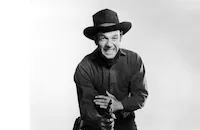
Dane Clark
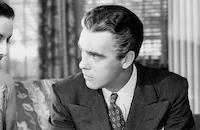
Warner Anderson

William Prince

Robert Hutton

Tom Tully
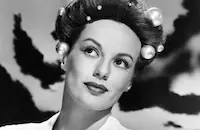
Faye Emerson
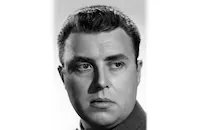
Peter Whitney

Warren Douglas

John Forsythe

John Alvin
Bill Kennedy
Ralph Mccolm
William Challee

Whit Bissell

Stephen Richards

Jack Mower
John Whitney
George Lloyd
Maurice Murphy
Joy Barlowe
Bill Hunter
Hugh Prosser
Frank Tang
Angel Cruz

Pierre Watkin
Cliff Clark
Charles Thompson
Russ Whiteman
Tony Hughes
Deborah Daves
Michael Daves
Bob Lowell
George Anderson
Roland Got
Carlyle Blackwell
Mary Landa
Dorothy Schoemer
Kirby Grant
Herbert Gunn
Warren Ashe
Lane Chandler
Lou Marcelle
Eddie Lee
Wing Foo
Ya Sing Sung
George Lee
Jimmy Evans
Dan Borzage
Bernie Sell
Paul Parry
Sailor Vincent
Charles Sherlock
Warren Cross
Wally Walker
William Hudson
Charles Sullivan

George W. Robotham
Cy Malis
Bob Creasman
John Sylvester
Duke York
Ted Jacques
Harry Bartell
Jay Ward
John Forrest

Paul Langton
Alan Wilson
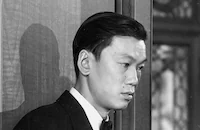
Benson Fong
James B. Leong
Bruce Wong
Crew
John Beckman
Lawrence Butler
Benny Cohan
Lt. Comdr. Phillip Compton
Joe Cramer
Owen Crompton
Delmer Daves
Steve Fisher
Frank Flanagan
Leo F. Forbstein
Bert Glennon
Chuck Hansen
Ed Henderson
Leo K. Kuter
Robert B. Lee
James Leicester
Chief Machinist's Mate Andy Lennox
Art Lueker
Albert Maltz
John More
Comdr. Dudley Walker Morton
George Nogle
Chris Nyby
Florence O'neill
Leon Raab
Roe Ramsey
L. Roberts
Fred Scheld
Walter Tilford
Willard Van Enger
Jerry Wald
Jack L. Warner
Franz Waxman
Perc Westmore
Ken Whitmore

Videos
Movie Clip




Trailer
Hosted Intro
Film Details
Technical Specs

Award Nominations
Best Writing, Screenplay
Articles
Destination Tokyo
Another motivating factor was Grant's willingness to lend a hand to Hollywood rookies. Remembering that Mae West helped him get his start, Grant figured that he should do the same for others. In a similar fashion, Destination Tokyo became a helpful tool for the United States Navy. It was so accurate in the technical details of a submarine and its crew that the Navy used the production as a training tool.
Other trivia of note: Destination Tokyo was nominated for an Oscar for Best Original Screenplay. It was the film debut of Robert Hutton. John Garfield thought the film was one of his best efforts for Warner Bros. along with Air Force (1943) and Pride of the Marines (1945). Albert Maltz, who scripted this film, became one of the "Hollywood Ten" and was later blacklisted as an unfriendly witness during the communist witch-hunt of the late forties-early fifties.
Director: Delmer Daves
Producer: Jerry Wald
Screenplay: Delmer Daves, Steve Fisher (story), Albert Maltz
Cinematography: Bert Glennon
Editor: Vladimir Barjansky, Christian Nyby
Art Direction: Leo K. Kuter
Music: William Lava (uncredited), Franz Waxman
Cast: Cary Grant (Captain Cassidy), John Garfield (Wolf), Alan Hale (Cookie), John Ridgely (Reserve Officer Raymond), Dane Clark (Tin Can).
BW-135m. Close captioning.
by Scott McGee

Destination Tokyo
Cary Grant: The Signature Collection
Warner Home Video (WHV) is proud to celebrate Cary Grant's centennial with the Signature Collection DVD debut of five films from Hollywood's acclaimed screen legend whose gallantry and courtly charm spanned an illustrious career of 76 films. This collection includes Mr. Blandings Builds His Dream House, The Bachelor and The Bobby-Soxer, My Favorite Wife, Destination Tokyo and Night and Day. Each of the DVDs includes the extra bonus features
. "Grant was indeed Hollywood's quintessential leading man," says George Feltenstein, WHH's Senior Vice President Classic Catalog. "Equally comfortable at comedy or drama, his popularity is unwavering and is still the standard by which romantic, sophisticated leading men are judged."
Once told by an interviewer "Everybody would like to be Cary Grant," Grant is said to have replied: "So would I." Born Archibald Leach in Bristol, England, on January 18, 1904, Grant left school at 14 to join the Bob Pender Troupe of knockabout comedians touring the English provinces. In 1920, Grant first came to America when the troupe appeared on Broadway in Good Times.
In 1933, Mae West picked Grant for She Done Him Wrong and I'm No Angel and his movie career was off and running. In the late '30s, Grant became one of the first stars to work as a "free agent," making films for multiple studios including MGM, Columbia and RKO. In 1936, he first teamed with Katharine Hepburn and director George Cukor for Sylvia Scarlett, the initial film to fully demonstrate Grant's inspired comic flair. Among the films that followed were The Awful Truth, Bringing Up Baby, His Girl Friday, Topper, Philadelphia Story, Suspicion, Arsenic and Old Lace and None but the Lonely Heart, for which he won an Oscar® nomination. In 1970, the actor was given a special Academy Award® for career achievement.
Notably, Grant appeared in four of Alfred Hitchcock's best films, including the romantic thrillers North by Northwes with Eva Marie Saint; Notorious opposite Ingrid Bergman; Suspicion opposite Joan Fontaine and To Catch A Thief with Grace Kelly. Seemingly growing more handsome and charming as he got older, Grant retained his star status into the 1960s, appearing in such box-office hits as Operation Petticoat and Charade. He retired from the screen in 1966, but spent the next twenty years in the public eye, as a board member for companies such as Faberge, MGM and Hollywood Park. Despite constant offers, Grant refused to return to the screen, although he did consent to a series of retrospective Q&A evenings across America with his beloved fans. He enjoyed the experiences immeasurably, as did the audiences. It was in Davenport, Iowa while rehearsing for one of these "in-person" events that Cary Grant suffered a sudden stroke and died on November 29, 1986.
The Films in Cary Grant: The Signature Collection
Mr. Blandings Builds His Dream House - Goodbye city life; hello Connecticut, with plenty of laugh stops along the way. This movie classic - named by AFI as one of America's 100 Funniest Movies - about the frustrations and joys of building and owning a home features Grant as a New York ad exec who's taken on the task of building a house from the ground up. Will he lose everything, including his sanity, or become a happy suburban homeowner? Myrna Loy, as his extremely patient wife and Melvyn Douglas join in the fun.
Mr. Blandings Builds His Dream House will have the following extra content:
· Two Radio Productions:
- October 10, 1949 LUX Radio Theatre Broadcast starring Grant and Irene Dunne
- June 9, 1950 Screen Directors Playhouse Broadcast starring Grant and (his then-wife) Betsy Drake
· "The House of Tomorrow" Classic M-G-M Tex Avery Cartoon
· Cary Grant Trailer Gallery
· Theatrical Trailer
The Bachelor and The Bobby-Soxer - 1947 Academy Award® winner for Best Original Screenplay (by Sidney Sheldon), the film stars Cary Grant with Myrna Loy and a teen-aged Shirley Temple. In this very entertaining romantic comedy, Grant plays Richard Nugent, a bachelor minding his own business who finds a love-sick girl (Shirley Temple) asleep on his couch. The older sister of the teen is a Judge (Myrna Loy), and she "sentences" Nugent to go out with the bobby-soxer until she is no longer infatuated.
The extra features included on the DVD are:
· June 13, 1949 LUX Radio theatre Radio Production starring Grant and Temple
· "Little Tinker" Classic Tex Avery M-G-M cartoon
· Cary Grant Trailer Gallery
· Theatrical Trailer
My Favorite Wife - Grant skillfully plays the romantic hunk and the comedic buffoon in this movie about marital mix-ups. Nick Arden (Grant) is on his way to the honeymoon suite with his new bride (Gail Patrick) when he runs into the wife (Irene Dunne) who was lost at sea and presumed dead seven years ago. The marriage knots have to be untied as the real Mrs. Arden steps up to claim her husband in this quirky romance filled with high jinks and big laughs.
My Favorite Wife will contain the following bonus content:
· Vintage M-G-M Robert Benchley short subject "Home Movies"
· December 7, 1949 Screen Director¿s Playhouse Radio Production starring Grant and Dunne
· Theatrical Trailer
Destination Tokyo - Grant is a military hero in this action-filled war drama. As Captain Cassidy, Grant pilots the U.S. submarine Copperfin through the dangerous waters of the enemy's front yard. Delmer Daves makes his directorial debut with this film that critics say remains "a classic war drama." This is the only military drama Grant made during World War II.
Destination Tokyo will contain these bonus features:
· Warner Bros. WWII short: "Gem of the Ocean"
· Cary Grant Trailer Gallery
· Theatrical Trailer
Night And Day - Appearing in his first Technicolor motion picture, Grant portrays Cole Porter, the legendary, sophisticated songwriter whose life was marked by triumph and tragedy. He's joined by a superb cast including Alexis Smith, Jane Wyman, Eve Arden and Monty Woolley as himself. The film contains more than 20 of Porter's songs which have been enjoyed by many generations over the years. One of the film's most famous moments is Mary Martin re-creating her Broadway performance of "My Heart Belongs to Daddy," the show-stopper that made her an overnight star. Even Cary gets into the act singing "You're the Top" with `40s chanteuse Ginny Simms. Interestingly, Hollywood is once again bringing Porter's life to the screen later this year, with Kevin Kline portraying the composer in Irwin Winkler's film "DeLovely."
The extra content in Night And Day will be:
· Vintage Warner Bros. Shorts: Desi Arnaz and His Orchestra and "Musical Movieland"
· Bugs Bunny and Elmer Fudd in "The Big Snooze" a classic Looney Tunes cartoon
· Cole Porter Trailer Gallery
Each DVD will be presented in a format preserving the aspect ratio of its original theatrical exhibition and will include subtitles in English, French and Spanish. All except The Bachelor and The Bobby-Soxer are in Dual-Layer format.
To order Cary Grant: The Signature Collection, click here. Explore more Cary Grant titles here.
Cary Grant: The Signature Collection
Quotes
Don't take any wooden Yen!- Tin Can
How come they picked you- Sparks
I don't know. Strong arm, strong back, weak mind!- Wolf
Trivia
The operation of the submarine as shown in this movie was so accurate that the Navy used it as a training film during World War II.
Ridgely's call to the USS Hornet in Japanese is "Dinki hokuku." The pronunciation is poor but it has been identified as meaning: "electronic communications".
Notes
According to an article in New York Herald Tribune, technical advisor Andy Lennox was a member of the crew of the submarine Wahoo, whose skipper, Lieutenant Commander Dudley Walker Morton, also offered advice to the filmmakers. After the picture's production, the Wahoo was reported missing in action. The emergency appendectomy performed by "Pills" in the film was inspired by an actual 1942 incident aboard the submarine Seadragon, in which pharmacist's mate W. B. Lipes successfully removed the appendex of seaman Darrell Dean Rector. As in the film, the real operation took place while the vessel was submerged, and was performed by Lipes at the urging of his officers, who felt that Lipes, who had observed appendectomies, was the best person to operate. According to a April 19, 2005 Los Angeles Times obituary of Lipes, he used a strainer and other kitchen equipment to perform the surgery, the first reported operation in a submerged submarine.
Key members of the cast spent time at the submarine base at the Mare Island Navy Yard in San Francisco Bay in order to become familiar with submarine operations. The Copperfin was designed to be an accurate scale model of a working submarine, but in order to confuse the enemy, the equipment and operating apparatus were a mixture of those found on all types of American submarines. A July 26, 1943 Hollywood Reporter news item notes that some scenes were filmed on location in Portuguese Bend near Redondo Beach, CA.
Cary Grant was borrowed from Columbia for this film. A December 3, 1943 Hollywood Reporter news item notes that the film's world premiere, which was held in Pittsburgh, benefitted crippled children. According to a press release included in the file on the film at the AMPAS Library, "Cassidy's" children were played by director Delmer Daves's children, Michael and Deborah. Steve Fisher received an Academy Award nomination for his original story. Modern sources note that President Franklin D. Roosevelt requested that this film make no reference to radar or military electronics.
















